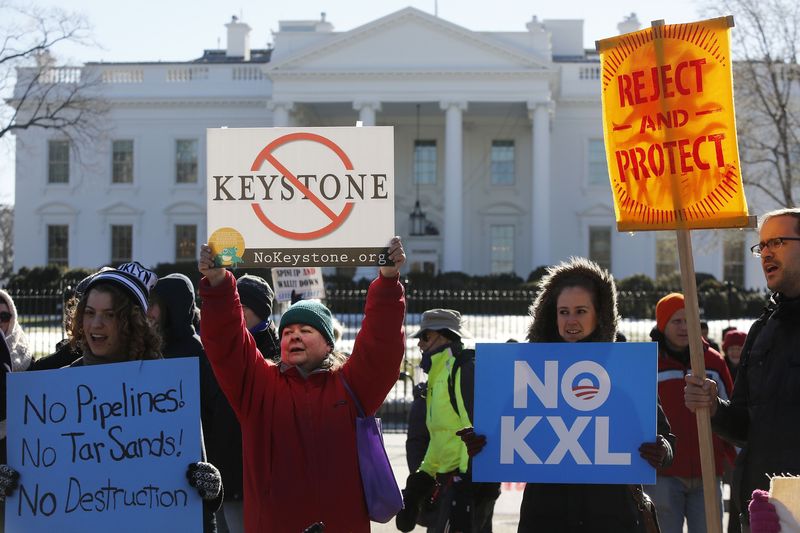By Timothy Gardner
WASHINGTON (Reuters) - The U.S. Senate advanced a bill on Monday to approve the Keystone XL oil pipeline as Republicans, who have made the project their first priority of the year, try to line up enough votes to overcome a potential veto by President Barack Obama.
The Senate voted 63-32 on a measure to allow debate and the offering of amendments on the bill.
"This evening's vote means it will now advance to the floor for open debate and every member will have an opportunity to offer amendments they believe will strengthen the bill," said Senator John Hoeven, a North Dakota Republican, who is sponsoring the bill with Democrat Joe Manchin of West Virginia.
Backers of TransCanada Corp's project also have 63 supporters, including all 54 Republicans, to take approval of the project out of the hands of the Obama administration and allow Congress to approve it. They are four short of the 67 needed to overcome any Obama veto, which the White House has threatened.
The final vote on the measure is expected to be held during the last week of January.
Supporters of the pipeline to carry Canadian oil to Nebraska en route to refineries along the Gulf Coast say it would increase U.S. energy security and weaken countries such as Venezuela, Iran and Russia that are on unfriendly terms with Washington.
Critics of the bill including environmentalists who are an important part of Obama's base say it would lead to an increase in emissions linked to climate change.
The Keystone bill will be the first test of Senate Majority Leader Mitch McConnell's promise to hold open debates on amendments in the full Senate. Democrats plan to offer several amendments that could prolong the debate, such as one that would prevent oil transported by the pipeline, which will carry 830,000 barrels per day, from being exported.
The Obama administration has been considering Keystone for six years. After a Nebraska court ruled on Friday that the pipeline's route through the state will stand, supporters of the project say it is time for Obama to work with Congress.

But the president, who has said he would not approve the project if it significantly boosted emissions, has said the State Department must complete its review. He has also raised questions about the project recently, saying it would do nothing to lower gasoline prices for U.S. consumers.